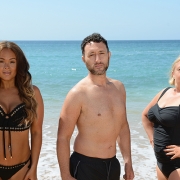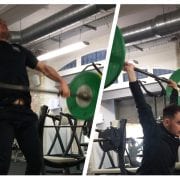Developing and keeping a growth mindset during the most challenging of times
There’s no escaping the fact we are living in very different times as we all try to navigate our way through the Coronavirus pandemic. We are now required to embark on social distancing measures and only to leave our homes for essential provisions alongside exercise. As humans we are social creatures and thrive off social and physical interaction. The ‘new normal’ will undoubtedly impact our mental health and wellbeing. However, there are things that we can do, that we can control, to ensure we reach the other side of this outbreak with our mental health intact and our mind fixed on a positive future.
Your mindset plays a critical role in how you cope with life’s challenges, such as social distancing and self-isolation. People who are known to have growth mindsets show greater resilience and are more likely to have self-motivation and will continue moving forwards in the face of setbacks.
The goal for us all should be to adopt a more growth mindset approach. However, for some of us, this isn’t always easy as mindsets are developed early in life, when we are children and can therefore be hard to shift. Here’s an overview of the different mindsets:
Fixed Mindset
- You were taught that you should look smart among peers and always aim for the top no matter what. You were taught to be mindful of how others perceive you, that you’re judged on your achievements and you must live up to certain expectations.
Growth Mindsets
- Children with these mindsets were more likely to explore, try new experiences and revel in new challenges. Mistakes weren’t viewed as negative experiences but instead setbacks, which could be learnt from. Success was applauded but effort and hard work was seen as a true indicator for success.
While people with a fixed mindset might not necessarily agree, you can change your mindset – and here’s how.
Let’s look at the situation we face now. For many people jobs, careers and businesses are on the line. However, if we are going to get through these next few weeks and subsequent months we need to adopt a growth mindset to block out and cancel the negative voices and instead focus on what we need to do to ramp up our strategies and efforts, what we can do to stretch ourselves, expand our abilities and create new opportunities.
With many of us spending vast amounts of time alone, our internal monologue could adopt a fixed mindset approach. But don’t be afraid to stand up to it and tell that fixed mindset voice that you will reformulate, re-evaluate your approach. For example,
A fixed mindset might say: “What if you fail, you’ll be a failure.”
Whereas a growth mindset will argue: “Successful people have experienced failures along the way.”
If there’s one piece of advice I can offer at present it is to adopt a more growth mindset way of life but don’t try and do too much. One of the best examples I heard recently is from a prominent behavioural sociologist who said the way to deal with isolation is remember what you loved doing when you were 10 years old and do more of that…intuitively that makes perfect sense to me as it takes you to a content place where invariably you enjoyed doing that very thing so much!
Developing a growth mindset approach isn’t something that will happen overnight. You will need to practice it consistently over time – like anything else. Oh, and don’t put too much pressure on yourself…some of you may be able to learn Spanish in three months but development isn’t a competition. Do what makes you content and that will in turn keep you moving forward in your mind.
A great exercise to try is, each day when you wake up ask yourself these two questions and if you can, note them down:
- What are the opportunities for my development today?
- When, where and how will I do this?
We are living in different times and the truth is we are all finding our way. If we look to adopt a growth mindset and support each other, we can navigate successfully through this period.
For those who really want to adopt a growth mindset and want to be positive about the future you’re one step closer. According to research, the simple act of reading and learning new things can have a significant impact on your attitude and performance. If you’ve reached this far, well done!
The team at URBANFITNESS London are more than a team of trainers and professionals. We see ourselves as coaches and we want to support you in as many ways as possible. Just last month we adapted and launched our new online fitness platform, but we know that during this time people need more than burpees and press ups (although these will of course help). Therefore, if we can help or support you in any other ways please let us know. That’s what people with a growth mindset would do, and we would love to hear about your personal mindset strategies. Please do share them with us…
Health & exercise is now more important than ever for us to help ourselves and of course the NHS so I’ll leave you today with an outstanding quote from Chris Witty our nations C.M.O. from just yesterday…
“Let’s be clear, there is no situation, age or condition where exercise is not a good thing for all of its benefits and that’s exactly why we included it in the very limited number of reasons to leave your homes in the current pandemic.”
Jonathan Williams, co-founder URBANFITNESS London





